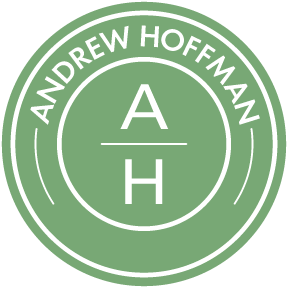Recent Thoughts on Servant Leadership
I returned back to Taylor University this Fall to resume my MBA after two semester off after my wife and I adding twin boys to our family. Despite feeling like I've been hit head on by a semi with the amount of work 9 credit hours adds to my schedule, it's going to be a good term. At least that's what I'm telling myself.
One of the texts we're reading in the Ethics class is an old book written by Robert Greenleaf titled, Servant Leadership: A Journey into the Nature of Legitimate Power and Greatness. I know there are varying thoughts on the legitimacy of the concepts behind servant leadership, but I find value in the idea and wanted to share a thought or two that stood out to me in the book.
The servant-leader is servant first..........
It begins with the natural feeling that one wants to serve, to serve first. Then conscious choice brings one to aspire to lead. That person is sharply different from one who is leader first, perhaps because of the need to assuage an unusual power drive or to acquire material possessions. For such, it will be a later choice to serve-after leadership is established. The leader-first and the servant-first are two extreme types. Between them there are shadings and blends that are part of the infinite variety of human nature.
The difference manifests itself in the care taken by the servant-first to make sure that other people's highest priority needs are being served. The best test, and difficult to administer, is this: Do those served grow as persons? Do they, while being served, become healthier, wiser, freer, more autonomous, more likely themselves to become servants? And, what is the effect on the least privileged in society? Will they benefit or at least not be further deprived?
This to me is why mentors are so important to our personal and professional development. We are attracted to these traits in leaders and want to be in their presence as much as we can in order to receive the energy they have. We know that when we are with them, they challenge us and show us insights that we've been longing to find.
As one sets out to serve, how can one know that this will be the result? This is part of the human dilemma; one cannot know for sure. One must, after some study and experience, hypothesize-but leave the hypothesis under a shadow of doubt. Then one acts on the hypothesis and examines the result. One continues to study and learn and periodically one reexamines the hypothesis itself.
Finally, one chooses again. Perhaps one chooses the same hypothesis again and again. But it is always a fresh, open choice. And it is always a hypothesis under a shadow of doubt. "Faith is the choice of the nobler hypothesis." Not the noblest; one never knows what that is. But the nobler, the best one can see when the choice is made. Since the test of results of one's actions is usually long delayed, the faith that sustains the choice of the nobler hypothesis is psychological self-insight. This is the most dependable part of the true servant.
This is exactly what happens to the volunteers who choose to go deeper at NeighborLink. They set out to give their gifting, time, & resources to the homeowners seeking assistance and have to be open to the process. Sometimes they believe that they're going to make a difference in someone else's life, but they end up with the life impact. They then take what they've learned and reapply it to the next project or the next interaction with that homeowner. Regardless, the most committed volunteers stay committed to serving and figuring out this process, each time giving a little more and testing what they're learning or what they hope to be true about the meaning behind Jesus' second greatest commandment of loving their neighbors.
If we buy into this content, we would agreed that Faith is the essential ingredient to remain committed to the processes that we're working on. Faith that the project or campaign at work is going to work. Faith that the tension we feel in a relationship can be restored. Faith is what keeps us committed to working really hard on the things that matter most to us. But, it requires a lot of intentionality and a willingness to keep trying until we get there.
Thoughts to ponder today.
